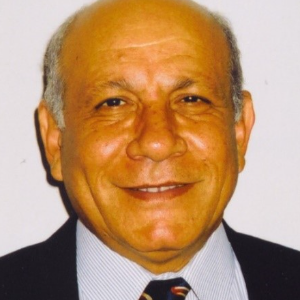Oilfield remote sensing has emerged as a transformative technology in the petroleum industry, offering a sophisticated means of monitoring, analyzing, and optimizing various aspects of oil and gas operations. Leveraging satellite imagery, aerial surveys, and ground-based sensors, remote sensing provides real-time data on exploration, production, and environmental factors. It enables the identification of potential hydrocarbon reserves and assists in mapping geological structures, enhancing the decision-making process in exploration activities. In production optimization, remote sensing aids in monitoring equipment health, detecting leaks, and managing infrastructure, contributing to increased operational efficiency and reduced downtime. The technology plays a crucial role in pipeline monitoring and integrity assessment, enabling early detection of potential issues and minimizing the risk of environmental incidents. In environmental management, remote sensing facilitates the monitoring of habitat changes, vegetation health, and the impact of oil and gas activities on ecosystems. Additionally, it supports compliance with environmental regulations by providing accurate data for reporting and analysis. The integration of unmanned aerial vehicles (UAVs) and advanced sensors further enhances the precision and flexibility of remote sensing applications in oilfields. Oilfield remote sensing also contributes to safety by monitoring worker activities, identifying potential hazards, and facilitating emergency response planning. The continuous advancements in sensor technologies, machine learning, and data analytics enhance the capabilities of remote sensing, allowing for predictive modeling and proactive decision-making. As the industry embraces digitalization, the utilization of remote sensing technologies is expected to expand, fostering a more sustainable and efficient approach to oil and gas exploration and production.

Anthony J Sadar
Environmental Science Communication, LLC, United States
Selim Sanad Shaker
Geopressure Analysis Services, United States
Sharma Dronamraju
AKD Professional Solutions Inc., United States
Ross Cygan Taylor
North Sea Transition Authority, United Kingdom
Saleh Alqahtani
Saudi Aramco, Saudi Arabia
Abdulrahman Bahashwan
Saudi Aramco, Saudi Arabia



Title : The Vacuum Insulated Heatable Curtain (vihc): From conceptual invention to market deployment as a cost-effective dual solution for window heat loss reduction and localised radiant comfort
Saim Memon, Sanyou London Pvt Ltd, United Kingdom
Title : Transforming waste plastic into hydrogen: Progress, challenges, and future directions in pyrolysis-based integrated pathways
Nur Hassan, Central Queensland University, Australia
Title : Unlocking UKCS potential through collaborative well interventions
Ross Cygan Taylor, North Sea Transition Authority, United Kingdom
Title : Driving excellence in marginal field development and operations through an integrated smart strategy to unlock challenging sour oil
Sharina Al Muhairi, ADNOC Onshore, United Arab Emirates
Title : Innovative solutions for accurate and efficient gas monitoring
Raysa Bani Ibrahim, Abu Dhabi National Oil Company, United Arab Emirates
Title : Innovative solutions for accurate and efficient gas monitoring
Mariam Alzaabi, Abu Dhabi National Oil Company, United Arab Emirates